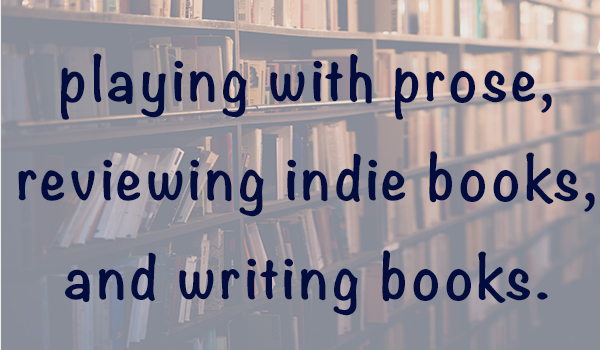
Blog 69: The Sacrifice
Blog 69
Hello everybody, today we have a piece from GaelicQueen on Writing.com title The Sacrifice.
Paragraph 1
I listened to the heavy footfalls of the Roman patrol as I hid beneath the cover of an old log and ferns. I held my breath waiting for them to pass.
Thematically/theoretically, this is a good opening paragraph. It inserts the reader into an immediate scene of peril and tension with inherent dynamics (our MC trying to hide while soldiers patrol) but the prose weakens the good effects.
The prose isn’t necessarily weak but it suffers from two different elements, the first being a prevalence of filler words, which slows and clutters the sentence with unimpactful words, and the second, though less significant, element of its core words lacking impact. (There’s also an element of the first sentence feeling somewhat run-on, because it strings together a lot of different information.)
Strong sentences are built upon their message (which, for this sentence, is quite strong) and how well its words convey and accentuate that message and its undertones. The words the author chose, while functional, also tend to be one dimensional. Consider ‘hid’ which conveys that the character is hiding and nothing else; does this make the word weak? No, but it does mean that it lacks a verve that potential counter parts might add, words like ‘cowered’ (which highlights fear and powerlessness) or ‘scrunched’ (which lacks the fear element but brings in connotations of tightness and texture.) You want to use words that don’t just tell the surface level of your story, but the underlayer as well, otherwise you often end up having to explain the underlayer at a later time, or you end up having to supplement your chosen word to achieve the desired impact. (Sometimes this is inevitable, but not always. The ‘heavy footfalls’ is an example of this, with ‘heavy’ being used to supplement the threat ‘footfalls’ lacks.) Continuing in that vein, consider how these sentences convey the author’s primary meaning but lack the nuance; there’s no indication of fear, so our main character could conceivably being lying in wait, or in control of the situation. Finding the right words to convey this nuance will both add depth to a sentence and enrichen the dynamics at play, while often resulting in a tighter overall narrative because you’re actively saying more with the same number of words. So how can we improve on this sentence? By cutting the unnecessary or the boring, and trying to find stronger variants of the core words to tell more of the author’s desired story or tone. (cutting fluff does not always mean just cutting outright, often times fluff is added for rhythm and sound and in these instances you wouldn’t want to just blindly excise it, but rather replace it with something that adds to the narrative instead.)
For the first sentence there’s two easy phrases to trim the sentence, the first being ‘footfalls of the Roman patrol’ which can be inverted into a possessive “the Roman patrol’s heavy footfalls’, and the second being ‘the cover of’ which is unnecessary for comprehension since ‘hid’ and ‘beneath’ convey the same information.
This leaves us with something like “I listened to the Roman patrol’s heavy footfalls as I hid beneath an old log and ferns.” But this doesn’t really read much better, it may even read worse because it exaggerates the two ‘I’ so they echo. It also exerts more pressure on the ‘as’ (since there’s less fluff in the sentence, there’s less to distract the readers, meaning the core words are more emphasized,) but ‘as’ is typically (here included) a weak word. It doesn’t add momentum or meaning to a sentence, it strings two actions together, but doesn’t actively connect them, it doesn’t let them build on each other in the same way a dynamic verb does. A rough example might be “Footfalls crashed through the undergrowth, driving me further beneath the old log.” This may be a bad example because ‘crashed’ is quite loud, but still look how leading with the footfalls as the subject allows them to drive the sentence forward and compel a reaction instead of the two actions being distinct from one another. Connecting via an action makes the various elements of a sentence dynamic, they affect and control and change the shape of one another, they exert power instead of just conveying information. (This is also how to make dynamic character, they effect change on the story, on scenes in the narrative. A dialogue between two dynamic character will drive itself forward and feel organic because of that, because it’s not stagnant, because every exchange is directly caused and sculpted by what came before.) ‘And’ is a slightly stronger word in this context because it has a stronger sense of correlation (also because the D is a stronger sound than the S.)
Taking a brief tangent, something I think’s worth discussing in more detail is ‘crashed’ vs ‘heavy footsteps’. These two preform largely the same purpose of make the patrol more threating, ‘crashed’ with the violence and volume to it, and ‘heavy’ by adding a sense of weight and power to the steps. We don’t need ‘footfalls/crashed’ to indicate the presence of the patrol, or to indicate they have feet, so these additions are purely atmospheric and emphasis. There are, of course, differences between them; ‘crashed’ is active and as such more energetic than ‘heavy footfalls’, but as an action ‘crashed’ requires a subject to act upon. This results in it requiring more words to implement, which is only a problem if you have nothing to say with those words (or nothing worth saying) or you already have a long sentence. In my original suggestion I used ‘crashed through the undergrowth’ which adds a little more depth to the scene visually (since undergrowth is not part of it) and tacitly since the patrol is touching the undergrowth. ‘Footfalls’, while requiring fewer words, doesn’t add as much, and really only exists so that ‘heavy’ can be included. This does not mean ‘footfalls’ is bad, just that it’s possibly not being exploited to its full potential. Can we use it to say more? The first thoughts that leapt to mind was that we could use the footfalls to indicate a road, or have them clink with metal to indicate armor. The issue with those is that armor is somewhat a given since they’re soldiers or guards and the presence of a road isn’t particularly interesting (not that undergrowth is particularly interesting either) but also a hard road might not work as it wouldn’t really fit in a forest scene. Another use for ‘footsteps’ might be to focus on them more, use them a tool in the narrative, as a means to build tension through their progress and presence instead of them just being present. If I were writing it, and I’m not, it might turn out something like this…
—Cowering beneath an old log draped in ferns, I clutched my mouth and listened, stifling my breathing lest they hear me. Footsteps crashed through the undergrowth all around me, marching closer, growing louder and louder until, with a thud, one of the roman patrol stepped on to my log.—
Obviously I used ‘crashed’ as well, but that wasn’t against the rules. Focus on the ‘footsteps’ instead, how they mark progress and graduating peril until they ultimately deliver the solider right on top of our MC. But also note how the first sentence builds into that by emphasizing her being in a state of fear with ‘cowering’ and then by connecting that fear to the soldiers via her controlling her breath because of ‘they’ (which is a little bit hype, leaving them nameless, but still works because a huge deal isn’t made of it.) Another element to this paragraph is how knowing where the roman solider is in relation to her empowers the conflict (I.E desire to hide vs desire to find) and both gives the reader a much clearer picture of the immediate scene and helps make her fear/danger tangible because the person she’s hiding from is so close. I chose to use ‘stifled’ over ‘held’ because ‘stifled’ is rougher/more violent which feels more appropriate for an action of desperation. I also used ‘draped in ferns’ over ‘and ferns’ because ‘draped’ is an action and so adds energy to the sentence, but also because ‘draped’ adds description, conjuring more of an image than simply said ‘log and ferns’ does. So in this case I thought the benefits outweighed the cost of an additional word.
Mostly, though, all my changes here were about emphasizing the inherent story in the author’s paragraph: the danger and the pursuit, the hiding and maybe a sense of helplessness. Emphasizing probably isn’t the right word, ‘accentuating’ is closer. Once you have a good core story or conflict for a paragraph or chapter (or even sentence) you want to convey with words that add to it and indicate the desired emotions, or you want to get out of the way entirely and let the story tell itself. But even in that last case, using words that don’t fit the gravity or tone of what you’re trying to achieve will end up diminishing, or even subtly contradicting, your story and so weaken it.
That will be all for today.
If you like what you read (I know it was all of two sentences so maybe take a leap of faith) check out some of the author’s other content. If you’re feeling really generous, give them some of your own feedback.
https://www.writing.com/main/portfolio/view/gaelicqueen
If you liked my work, consider subscribing. Or lauding my untold magnificence down in the comments. Both work.

